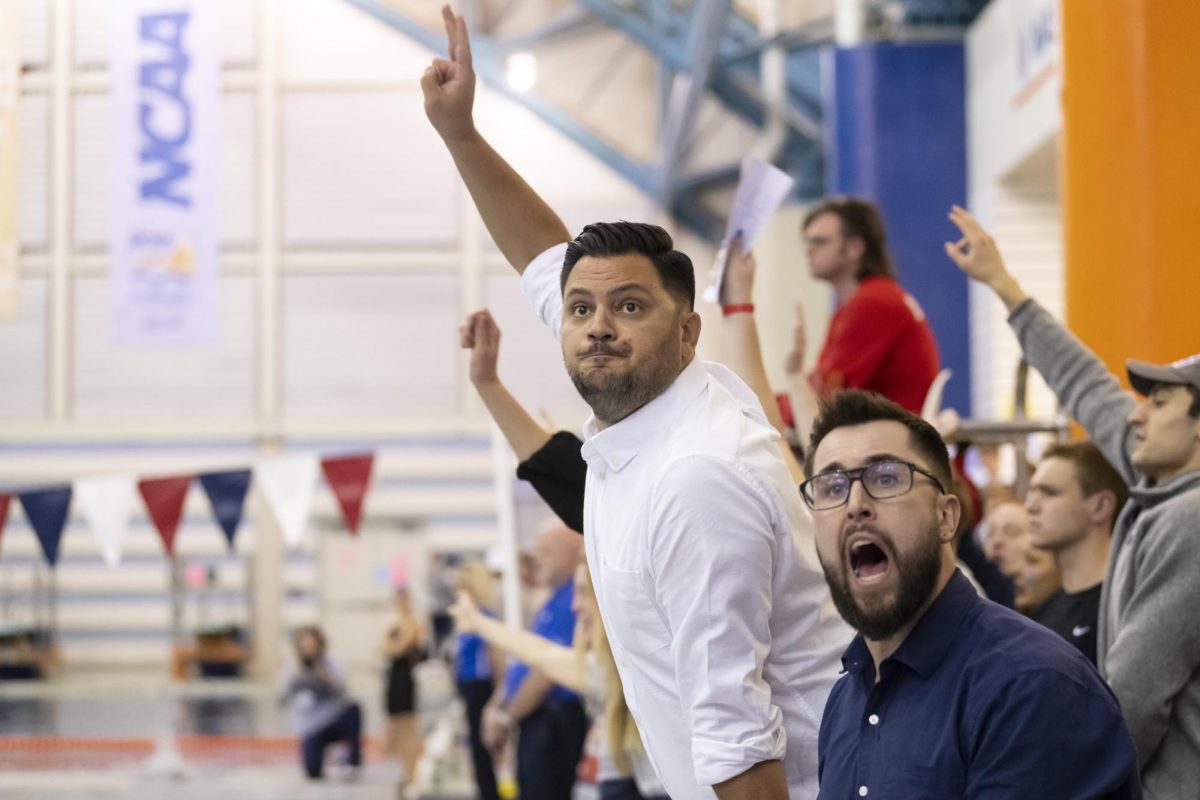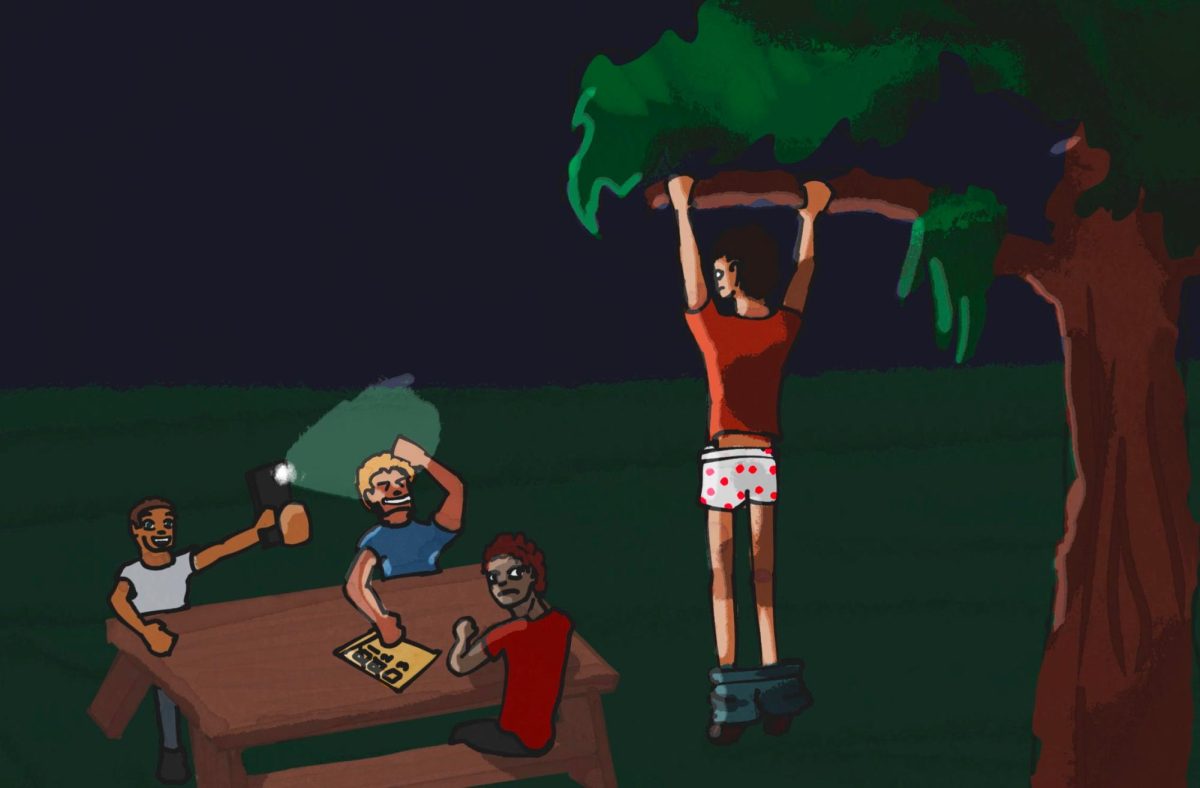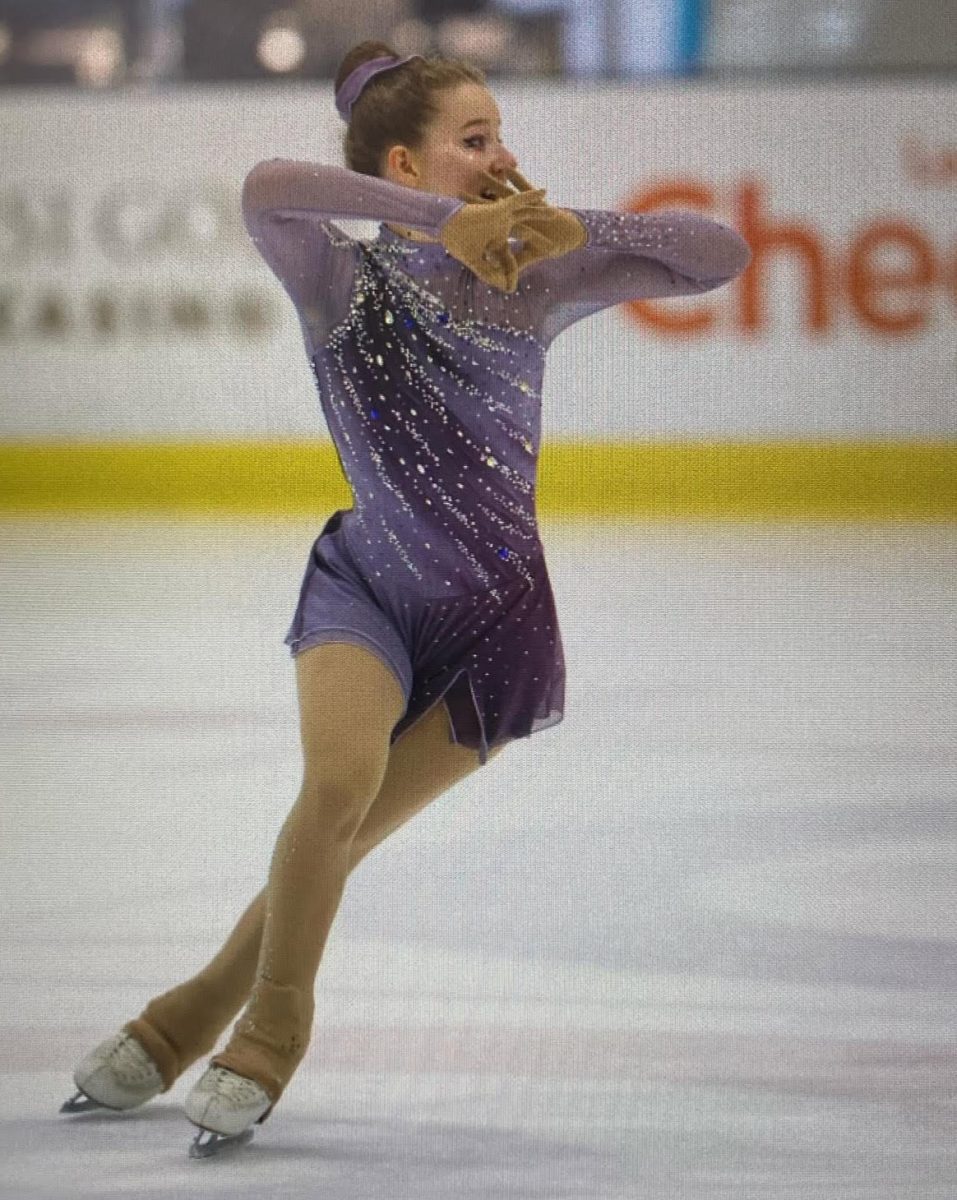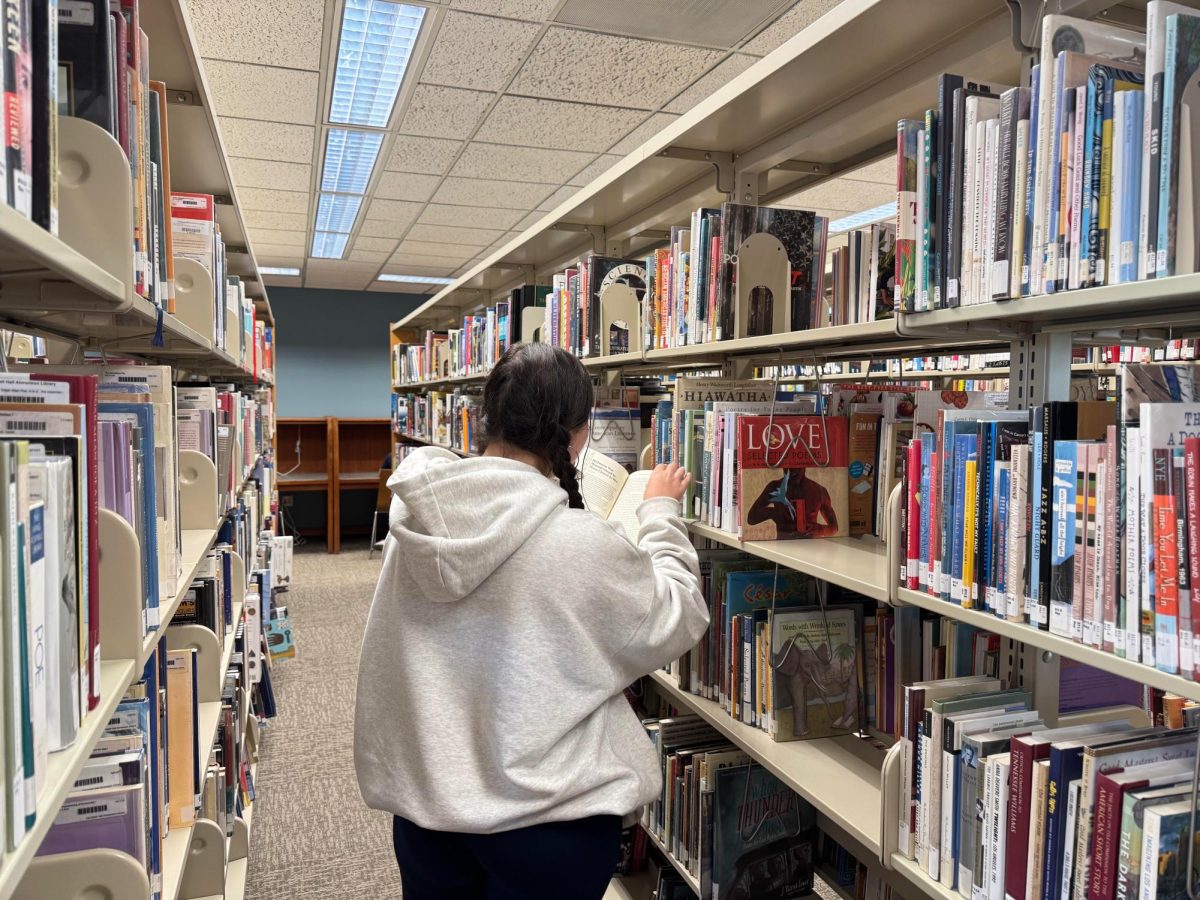Newly appointed Athletic Director Jack Leavitt is filled with excitement as his first official week of work—and upcoming move to Los Angeles—approaches. For now, during each commute to work at Georgetown University, where he has been the head swimming coach for the past nine years, he relishes the time spent among the monuments and beauty of our nation’s capital. Leavitt and his wife Megan are busy preparing for the upcoming move with their children, four-year-old Miles and seven-year-old Max. Soon, they will be trading views of Washington D.C’s famous cherry blossoms for California’s iconic palm trees. Despite all the changes ahead in his life, Leavitt is excited to fully immerse himself in what Campbell Hall has to offer.
Sports have always been a significant part of Leavitt’s life. As a child, he participated in a variety of activities, including basketball, soccer, baseball, and swimming. He credits sports with giving him opportunities he believes he would not have had as a first-generation college student. Swimming took Leavitt to Seton Hall University, where he developed close relationships with his coaches and teammates and had the opportunity to travel to places like Japan, Thailand, and the Virgin Islands for swimming. Aware that sports would always remain a significant aspect of his life due to the opportunities they offered, he began coaching immediately after graduating from college.
Leavitt has an extensive coaching background, having coached various swim teams for the past 17 years. In addition to his work at Georgetown, he also serves as an advisory board member for the Horizons Greater Washington’s nonprofit learn-to-swim program. In the past, he has been an assistant swimming coach at New York University, Harvard University and the United States Military Academy, as well as a head swimming coach at Crimson Swim School and the California Institute of Technology.
As a parent, Leavitt acknowledges his instinct to clear obstacles for his boys. However, as someone who comes from a family of hardship—his grandmother and mother immigrated from Venezuela—Leavitt knows how important facing a challenge can be. He believes in using sports as an outlet to overcome adversity, a skill he wants to instill in both his children and the athletes at Campbell Hall.
“Sports provides [a] kind of friction that is necessary for kids to deal with,” Leavitt said. “You’re going to meet adversity, you might not get playing time or a referee might have a bad call—whatever it is, [it] might not be fair, and that’s okay because that’s going to be something that is important for you to learn later to carry through life. I really do look at sports as a multifaceted tool [because] for some people, it might change their entire life [and] set them on a course to be professional like it had done for me and so many others.”
Leavitt models his coaching and leadership style on Kevin Tyrrell, his high school swim coach. After reconnecting with Tyrrell in college following a sports injury, Tyrrell became Leavitt’s biggest supporter, helping him to regain his self-confidence. Eventually, Tyrrell became his most significant mentor in the coaching profession. Drawing on lessons learned from Tyrrell, Leavitt always leads with empathy.
“If you lack empathy, it is really hard to get people to understand where you’re coming from,” Leavitt said. “The biggest thing for me is to meet [people] where they’re at. They need to know who I am, where I’m coming from and what I care about because that’ll make [our] relationship last longer. Empathy builds trust, and then trust builds relationships, and then relationships build [the] belief [that their coach has their best interest in mind].”
At each university where he has coached, Leavitt has observed that the balance between high achieving academics and high performing athletes was maintained. He believes that this balance, although difficult to sustain, is critical for high school athletes as well.
“My goal is to provide an experience that’s worth it for every student athlete,” Leavitt said. “That [they] feel [that they’re] getting better and [their] coaches care about [them]. [Their coaches] care about the other things that [they] have going on in [their] life. Ultimately [I want them to know that whatever they’re doing] is going to be hard [and] it’s going to push [them] in ways that [will show them they’re] still learning about [themselves]. But ultimately, in the long run, it’d be worth it.”
One of Leavitt’s goals is to uphold Campbell Hall’s commitment to caring for individuals, which aligns with his coaching philosophy. Although he knows it will take some time to adapt to the school’s culture, he believes immersing himself in the community will provide the most valuable experience for both him and student athletes.
“It’s not just about my role as an administrator and athletic director,” Leavitt said. “I want to be known by everybody on campus [as somebody who] is helpful and cares about what [everybody is] doing. It’s not just about the athletes [or] the sports and wins and losses. It’s about what we represent and how we, as an athletic department, add to the value of the overall community of Campbell Hall.”
On the individual level, Leavitt wants to foster student athletes’ love for their sport while pushing them to perform their best. While at Georgetown, Leavitt was primarily focused on the swim team, but he began to collaborate more with the coaches of the 30 other athletic teams and university programs, including a leadership committee and an onboarding committee. For Leavitt, immersing himself in Georgetown’s athletics department was a key goal that sparked his interest in becoming an athletic director. He finds joy in mentoring young athletes and collaborating with coaches, so he looks forward to doing more of that in his new position.
“I think the professionalization of some sports has forced us to miss a little bit of what [sports are] all about,” Leavitt said. “To come back to a K-12 school and be able to use some of the knowledge that I’ve gained working with college athletes about [how] people want to end up at that level [gives me the opportunity to] help [student athletes] achieve that. [At the same time, I asked them to] also not lose sight of the fact that this is supposed to be pretty fun.”
In both his coaching career and his life, showing effort means the most to Leavitt. As a father and a husband, he hopes his move to LA will allow him to spend more time with his family. In his professional life, he plans to continue his efforts to build relationships first. His life motto is that people don’t care what you know until they know that you care.
“You could have all the information,” Leavitt said. “You could be the best coach or the best teacher, but if people don’t know that you [care] about who they are, then it doesn’t matter. So I’ve always lived by that in my coaching—before I can get [my athletes] to do the things that I’m asking them to do, they need to know [that] I really care about who they are and what they have going on.”
























